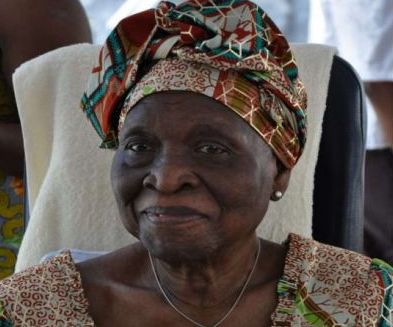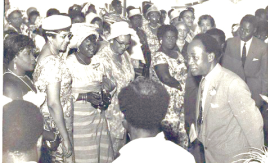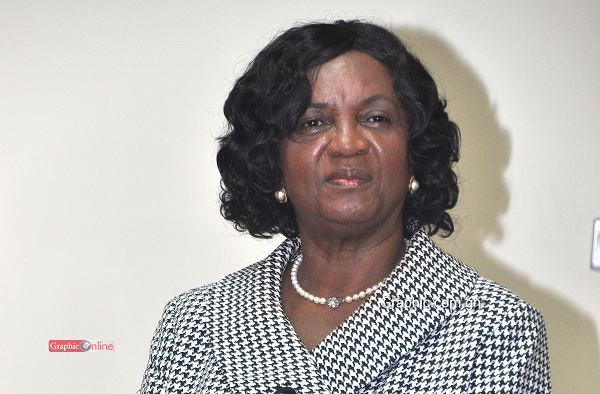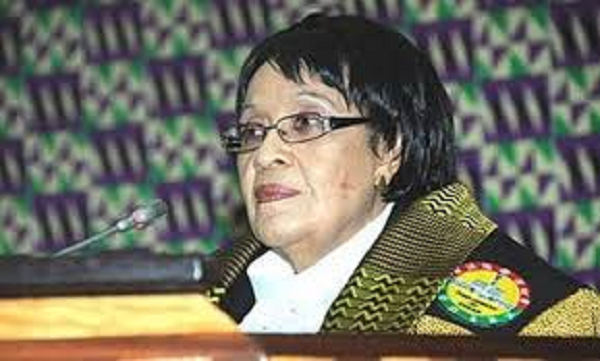
Women who made history are role models
Long before the White man thought of colonising our country, women had played cardinal roles in sustaining livelihoods and culture. They were regarded as the fabric on which the kinship system was woven.
Economically, women were engaged in the informal sectors of the economy such as food processing and trading of agricultural produce.
This is in recognition of the fact that women’s contribution to labour, productivity and family
Sustenance cannot be overemphasised, and these justify women's participation in the country’s political process.
The United Nations Development Programme (UNDP) Human Development Report on Gender and Human Development maintains that: “Women are a breed of impressively talented and remarkably intelligent people with a unique repertoire of experiences and knowledge, constituting both a source and signal of social change.”
Historically, Ghana has had varying degrees of successes in its efforts at effectively ensuring women's representation in national decision-making bodies.
National development
Assessing the role of women in national development in the precolonial, colonial and post-colonial era in her delivery at this year’s three-day J.B Danquah Memorial Lectures, a retired Professor of History at the History Department of the University of Ghana, Prof. Akosua Adoma Perbi, said the colonial era refused to legitimise and recognise the power and authority of women that existed in the traditional setting.
Women were cautious and diplomatic in all their endeavours, such as performing traditional rites and engaging in military activity.
They were, however, allowed to play their economic and agricultural roles of planting and harvesting foodstuffs and also trading them on a much lesser scale.
In 1890, the first African woman employee to enter the Gold Coast public service was
Mrs Elizabeth Ferguson. This was possible after a letter had been written to the secretary of state in London to seek approval.
This act subsequently led to the admission of more black educated women into the formal sector. As of 1916, however, there were very few women engaged in clerical duties, while majority were in the informal sector.

Education
Despite the importation of workers from other colonies, there was an urgent need for workers in the country’s public service and this led the then Governor, Sir Guggisberg, to allow for the education of more men and women to the tertiary level who would fill up vacant public service positions in the Gold Coast.
Factors such as less value for education, prospective vocation of motherhood and marriage led to low enrolment of women in school.
It was, however, difficult for women to attain higher positions in the public service. This was mainly due to stiff recruitment process and also the low number of women who pursued higher education.
For instance, jobs such as administrative officers were the sole reserve of men due to the multitasking nature of the job. It was also a tedious job that required trekking long distances and crossing rivers such as the Pra River, which was a taboo for women.
Administrative officers were also required to act as arbitrators among chiefs, which was an unusual thing for women to do.
Women in the colonial era were at risk of losing their jobs when they got married or went on maternity leave.

Traditional setting
The negative treatment of women in the colonial era was reinforced by the traditional setting which specifically assigned certain duties such as cooking, nursing the children and sweeping of the house to women.
Prof. Perbi, however, described the post-colonial era of Ghana as a revolutionary period in the country’s history that provided a favourable atmosphere for more women to participate in political and civil engagement.
According to the History professor, under the regime of Ghana's first Prime Minister, Osagyefo Dr Kwame Nkrumah, who became President in1960 when Ghana attained a republican status, Ghana instituted affirmative action programmes that saw women in public offices and other male-dominated professions.
She noted that the election of Mabel Dove as the first female member of the Legislative Assembly in 1954 and the recruitment of the first female, Mrs Irene Wuntomi, in 1978 into the administrative staff of government signified the favourable atmosphere of post-colonial Ghana for women development.

Unfair treatment
That, Prof. Perbi indicated, was in contrast to the colonial era where women were not treated fairly as they were either made to resign from work upon marriage or lost their jobs upon taking maternity leave.
She added that: “An examination of parliamentary debates from 1960 to 1965 showed that women members of Parliament stood for Ghanaian women in agriculture, health, education and employment.”
She also noted that women’s occupation of high-profile positions in the governance structure of the country, such as having two female Chief Justices in succession and three female Attorney-Generals in succession, only emphasised how far women had come.
In spite of the role of women in the political struggle, there was no woman in Cabinet when Ghana attained a republican status, but the contribution of women to Ghanaian politics after independence resulted in the introduction of the Representation of the People (Women Members) Bill in 1960.
Ten women
The bill was passed and it received the Governor-General’s assent on June 16, 1960. Through that act, 10 women were elected unopposed as Members of Parliament (MPs) in June 1960.
They were Susana Al-Hassan, Ayanori Bukari and Victoria Nyarko, all representing the Northern Region; Sophia Doku and Mary Koranteng, Eastern Region, and Regina Asamany, Volta Region.
The rest were Grace Ayensu and Christiana Wilmot, Western Region; Comfort Asamoah, Ashanti Region, and Lucy Anim, Brong Ahafo. That made Ghana one of the first African countries to introduce a quota system for women.
Busia’s government
In 1969, the government of Dr K.A. Busia which was popular for instituting a three-month maternity leave with pay had a representation of two women out of 140 MPs.
After the December 2000 election, 19 women were elected as MPs, with two women as regional ministers, two women as Cabinet ministers and two as deputy ministers.
The then Ministry of Women and Children’s Affairs was created during the tenure of former President John Agyekum Kuffour from 2001 to 2008 to offer better opportunities to prioritise and address issues relating to women and children.

Role of Ghanaian women
The Women’s Manifesto for Ghana, a document that sets out critical issues of concern to women in Ghana, put together in 2004 by the Coalition of the Women’s Manifesto for Ghana and hosted by Abantu for Development, acknowledges that in spite of the pivotal role Ghanaian women play within the family, community and society at large, they occupy limited positions of key decision making in various sectors of the economic, political and social life.
This is because though Ghana has ratified major international instruments that call for affirmative action policies and created a specific Ministry for Women and Children, now Ministry of Gender, Children and Social Protection, with explicit objectives to improve the socio-economic status of women and children, there still exists a disconnect between the existence of these concrete policies and the effective creation of avenues for women's participation, both in politics and public organisational life.
Women’s population
Though women constitute over 51 per cent of the country’s population, since 1992 when the country returned to multi-party politics, women’s representation in Parliament has not increased in any significant way.
From the election in 1954 that had Mabel Dove become the first female member of the Legislative Assembly till the present era, our political landscape has shown a steady political advancement of women.
According to the History professor, the election of Mabel Dove as the first female member of the Legislative Assembly in 1954 and the recruitment of the first female, Mrs Irene Wuntomi, in 1978 into the administrative staff of government signified the favourable atmosphere of post-colonial Ghana for women’s development.
